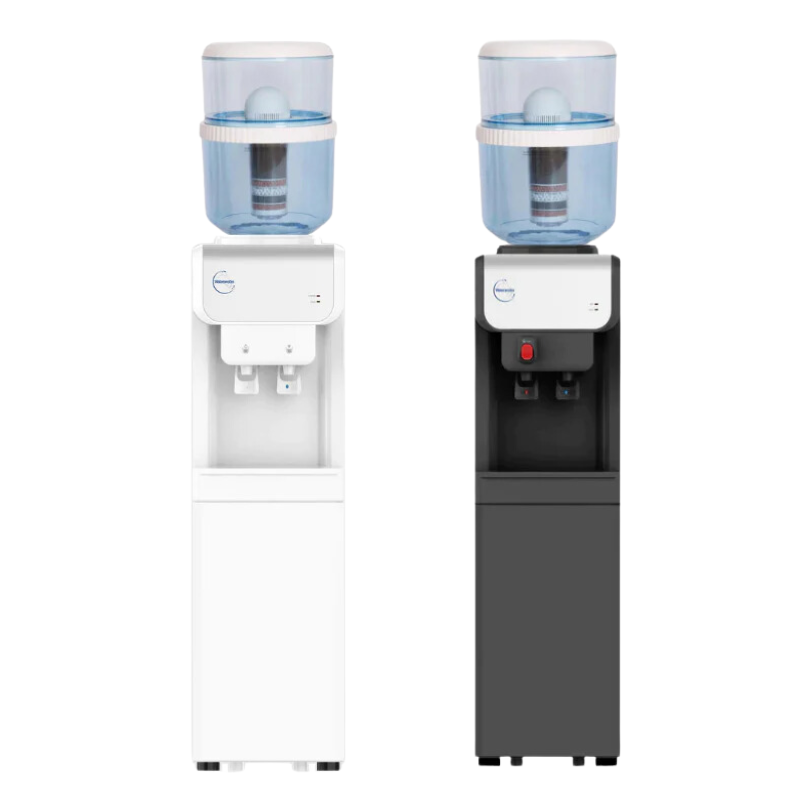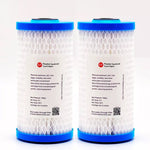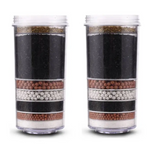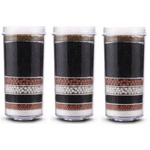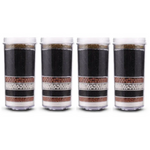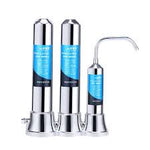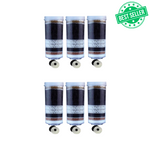You have no items in your shopping cart.
Are you curious about whether your charcoal water filter can effectively remove fluoride? Understanding the science behind charcoal filtration and its limitations is essential for making informed decisions about your drinking water. This article explores the role of charcoal filters in water purification, specifically focusing on their ability (or inability) to remove fluoride, and provides alternative solutions for those seeking fluoride-free water.
Table of Contents
- Understanding Fluoride in Drinking Water
- How Charcoal Filtration Works
- Can Charcoal Filters Remove Fluoride?
- Alternatives to Charcoal for Fluoride Removal
- A Client’s Experience with Water Filtration
- Why Understanding Filtration Science Matters
- Making the Right Choice for Your Home
- Conclusion: Ensuring Safe, Fluoride-Free Water
When it comes to ensuring the quality of your drinking water, many people are curious about the effectiveness of charcoal filters, especially when it comes to removing fluoride. If you’ve ever wondered how charcoal filtration works and whether it can tackle the task of fluoride removal, this article will guide you through the science in a straightforward, reassuring way.

Understanding Fluoride in Drinking Water
Fluoride is a naturally occurring mineral that is often added to public water supplies to help prevent tooth decay. While fluoride’s benefits for dental health are well-known, there’s ongoing discussion about whether it’s necessary or even desirable to have fluoride in your drinking water. For those concerned about their health and water quality, understanding how to remove fluoride effectively is key.

How Charcoal Filtration Works
Charcoal filters, commonly known as activated carbon filters, are widely used in water filtration systems due to their ability to remove impurities like chlorine, sediment, and volatile organic compounds (VOCs). The science behind this process is called adsorption—a method where contaminants stick to the surface of the charcoal, rather than being absorbed.
But here’s the big question: Does this process work for fluoride?

Can Charcoal Filters Remove Fluoride?
The short answer is: not effectively. Charcoal filters are great at trapping many types of impurities, but fluoride is a tough customer. Fluoride ions are small and not easily adsorbed by the porous surface of activated charcoal. Therefore, while charcoal filters can improve the taste and smell of your water by removing other contaminants, they aren’t the best solution for fluoride removal.

This brings us to the next logical step—exploring alternatives.
Alternatives to Charcoal for Fluoride Removal
If you're serious about reducing fluoride in your drinking water, it’s essential to explore filtration methods that are specifically engineered to target this compound. Fluoride, commonly added to public water supplies to promote dental health, has been a topic of debate for years. While some people appreciate its benefits, others prefer to minimize their fluoride intake due to potential health concerns. For those in the latter group, relying on standard filtration methods like charcoal filters may not suffice, as these are not particularly effective at removing fluoride.

To effectively reduce fluoride levels, you might want to consider more specialized filtration systems. Reverse osmosis systems are one of the most popular choices. These systems work by forcing water through a semi-permeable membrane, which removes up to 99% of contaminants, including fluoride. While reverse osmosis systems can be a bit pricier and require more maintenance than standard filters, they are highly effective at purifying your water.
Another option is deionizers, which use ion exchange resins to remove mineral ions, including fluoride, from the water. These systems are typically used in laboratory settings or industries that require ultra-pure water, but they can also be adapted for home use. However, they might not be as widely available or as user-friendly as reverse osmosis systems.
For those seeking a more straightforward solution, fluoride-specific filters are available. These filters often use activated alumina, a material that can adsorb fluoride from water. They are typically more affordable than reverse osmosis systems and can be used in conjunction with other filters to enhance overall water quality. However, their effectiveness can vary depending on the initial concentration of fluoride in the water and the flow rate through the filter.
For instance, a fluoride ceramic water filter is engineered to tackle fluoride and can be a valuable addition to your home water system. You can check out this Fluoride Ceramic Water Filter for a solution that’s tailored specifically for this purpose.

A Client’s Experience with Water Filtration
One client shared their experience of setting up a charcoal filtration system in their kitchen. While they were happy with the improved taste and clarity of their water, they later learned that it wasn’t doing much to reduce fluoride. After researching and speaking with a water filtration specialist, they decided to upgrade to an 8-stage KDF water filter, which includes a fluoride removal stage. The client reported feeling much more confident about the quality of their drinking water after the switch.
You can explore similar options like the 8-Stage KDF Water Filter, which provides a more comprehensive approach to water purification, including fluoride removal.
Why Understanding Filtration Science Matters
It’s easy to assume that a charcoal filter can do it all, but the science shows that when it comes to fluoride, you may need something more specialized. Understanding how different filters work allows you to make informed decisions about your water quality.
Charcoal filtration is an excellent starting point, especially for removing common impurities that affect taste and odor. However, if fluoride removal is your goal, it’s worth investing in a more advanced system designed for that purpose.

Quadruple Pack: ACE 7 Stage Fluoride Reduction Filter Cartridges
Making the Right Choice for Your Home
Choosing the right water filtration system depends on your specific needs. If you’re looking to remove fluoride from your water, it’s essential to go beyond standard charcoal filters and consider specialized options. The goal is to ensure that you and your family are drinking water that’s as pure and safe as possible.
By understanding the limitations of charcoal filters and exploring alternative methods, you can take a proactive approach to water quality. Investing in a system that addresses your concerns—like fluoride removal—will help you enjoy better-tasting, healthier water every day.
Conclusion: Ensuring Safe, Fluoride-Free Water
While charcoal filters are effective for many types of water impurities, they fall short when it comes to fluoride removal. For those concerned about fluoride in their drinking water, it’s important to explore specialized filtration systems that are designed to handle this specific issue.
By choosing the right filtration method, you can ensure that your water is not only clean and refreshing but also safe from unwanted additives like fluoride. Remember, understanding how these systems work and selecting the right one for your home is a crucial step toward better water quality and peace of mind.

